While everyone is talking about women snubbed by the Academy, we share ten remarkable genre performances that deserved Oscar recognition.
It’s that time of year again: time to hand out trophies for the year’s best work in front of and behind the camera. The 2024 Oscar nominees have just been released, and, unsurprisingly, horror was once again shut out of any awards consideration.
Why does horror continue to get dismissed by the Academy?
Horror has long been almost exclusively shut out of serious awards consideration, and theories abound on why. Some say horror isn’t true film or art. Others argue that the violence is the star and that there’s insufficient focus on a thoughtful and compelling story. Many label the genre as not artistic enough to warrant the industry’s highest recognition.
Other theories may be closer to getting to the real root of the problem. Have you ever heard the phrase “follow the money”? The theory is that the awards go where the money is. Horror films tend to have much lower budgets. Films are made for far less than most studio productions, including superhero films and sweeping ensemble dramas. Though they are often considered very profitable regarding return on investment, they tend to have lower box offices than bigger productions.
They also have smaller advertising budgets and certainly less of a marketing machine behind them, which is often required to court Academy voters and campaign for nominations. (Editor’s Note: It costs a whopping $20,000 to upload your film to the Academy screening library for awards consideration.)
Regardless of the reason or reasons why great genre performances and films continue to get overlooked each year, it will never stop being a source of anger, disappointment, and frustration to horror fans.
Over the next few weeks leading up to the Oscars, we’ll share some of our picks for the talented creators and performers we believe deserve far more recognition, starting with the leading ladies.
These women delivered breathtaking breakout performances easily on par with anything in a drama or artsy period piece. Had these performances not been relegated to the horror basement where ill-informed Academy voters place subpar material, there is little doubt they would have received Oscar nods.
Ladies and gentlemen, I give you some of the greatest Best Actress and Best Support Actress Oscar snubs.
1. Toni Colette (Hereditary)
Ask almost any horror fan who they consider the biggest Oscar snub of all time, and you’ll likely get the same answer: Toni Collette’s powerful, emotionally devastating, and utterly captivating performance in Hereditary.
I’ll never forget the screaming; that’s when I knew I was watching an Oscar-caliber performance. It was the guttural, pained screaming of a mother who had lost her child. An orphan is a child that’s lost their parent, but there’s no word for a parent that’s lost a child; it’s too horrible a thing to name, I’ve heard. I’m haunted by that sound sometimes, as I tend to rewatch the spectacular cult phenomenon Hereditary.
Toni Collette carries the weight of that potent film as the damaged matriarch, navigating both her mother and her daughter’s passing, which happens so horribly close together.
They say there is no pain comparable to losing a child, and in those heaving, sobbing moments, Toni Collette convinces us of this truth. Her earth-shaking transition from being just another overprotective mother to a desperately grieving one searching for answers in any place she can find them shows tremendous range. We watch, captivated, as Annie careens down spiritual paths she doesn’t understand that might reconnect her with her daughter.
If you need more convincing of what makes this performance worthy of Oscar recognition, that infamous dinner table scene should seal the deal. It’s some of the most gut-wrenching and harrowing few minutes of celluloid and absolutely flawlessly delivered.
Annie’s passive-aggressive attitude escalates to a full shouting speech about how the family refuses to take responsibility for what they’ve done; her rage and despair are palpable.
Collette not getting an Oscar nod was an outrageous oversight and easily the most egregious on this list. Fortunately, she has been nominated before for her supporting role in The Sixth Sense, and she won a Chainsaw Award for her role in Hereditary, along with a Saturn Award nomination.
Collette is a marvel and a joy to have in the genre, and she continues to dazzle in role after role, including Knives Out, Velvet Buzzsaw, Krampus, Fright Night (2011), and Nightmare Alley. She also starred in the recent Prime Video sci-fi-thriller series The Power, which is about teenage girls who develop an organ that generates electricity.
In 2024, she’ll be thankfully returning to genre work in the hotly anticipated Mickey 17 from Bong Joon Ho. Given the Academy’s previous recognition of Bong Joon Ho’s work on Parasite, our fingers are tightly crossed that some awards love may be headed her way.
It’s a gift to have an actress of her caliber continually return to indie and genre roles where she knows she may not get the critical celebration she deserves.
2. Lupita Nyong’o (Us)
After receiving this suggestion from my editor, I went back to watch Jordan Peele’s Us to refresh my memory regarding the performances, as I had been so focused on the tense and terrifying doppelganger action.
After a thoughtful rewatch, I’m happy to say Lupita Nyong’o is a star.
From the very beginning of the film, we get a sense of control and isolation from her, no doubt leftover from her possible PTSD diagnosis after getting lost as a child and coming across a double. Nyong’o is an emotional furnace with complete control of the heat, from the tepid cross-talk with costar Elizabeth Moss (another underrated actress on our list) on the beach to the wide-eyed, survival-driven terror when the home invasion begins.
Her performance once the doppelgangers are introduced is even more impressive when you factor in that she is also playing her alter-self, Red. The scene below should win you over if you’re not already convinced.
Red’s movements and voice are almost completely inhuman. I attempted to mimic some of the flickering finger gestures or hoarse, choked speaking, and I couldn’t get my body or vocal cords to contort in such a way that comes close to what Lupita does. It’s enough to make your skin crawl.
This performance was dynamic, evolutionary, and two-sided, showcasing Nyong’o’s significant talent.
It’s hard to imagine that critics overlooked this dual performance of an already Academy Award-winning actress from an Academy Award-winning screenwriter (Jordan Peele, previously recognized for his debut feature Get Out).
The passion and skill in this wholly original project from one of modern horror’s most brilliant minds is evident, and Peele delivers two characters played to pitch perfection by Lupita. It’s hard to argue that she did not deserve a nod for pure screen presence and for more than delivering on the devilishly difficult task of playing predator and prey.
3. Mia Goth (Pearl)
If she wasn’t already fully embraced as modern horror royalty, Mia Goth certainly earned her stripes when she famously clapped back at the Academy for completely snubbing her stunning performance in Pearl.
She scolded the Oscars for failing to take horror seriously, and her omission from awards recognition is a pretty solid case for that.
The sequel to the steamy slasher X from Ti West, Pearl is actually a prequel, giving us a character study and origin story for the old woman who terrorizes the sex workers making pornography on her farm in X.
We see her as a detached, violent old woman missing her former beauty. But Pearl takes us into her tragic past, where we find a much younger Pearl married and living a dreadfully lonely and unfulfilling life on her family’s farm while her husband is at war. She dreams of a much bigger life, desperately desires to be adored, and yearns to be a beloved star. But the cards seem stacked against her, and her failure to make the stars align in her favor drives her insane.
Goth’s performance is nothing short of sensational.
From dancing with a scarecrow in a field to an unhinged dancing audition — completely with an eerily unnatural uber-smile — you can’t take your eyes off of her for a minute. But if you’ve seen the now-notorious monologue, you know exactly why Mia Goth is on the list for the magnificently deranged Pearl.
It happens toward the end of the film, and it’s a scene even Goth herself said she needed to prepare for heavily.
Delivering a nearly ten-minute-long tearful speech to her sister-in-law in the form of a verbal letter to her husband, Howard, Pearl’s outpouring of emotion and shocking honesty begins darkly and only keeps descending.
Goth can be gentle, mournful even, her pursed lips muffling her shame. Then, in a moment, she can transform into a blaze — screaming, seething, and raging against god, the world, her husband, and her life.
It’s hard to imagine that Mia Goth won’t one day receive her statue. For now, she has a Saturn Award nomination and a Chainsaw Award win for her work in Pearl.
Those who overlooked her powerhouse performance in Pearl will have a chance to redeem themselves when MaXXXine is released this year (though the release and any acting accolades may be complicated by Goth’s recent troubles over the supposed treatment of fellow cast members).
4. Florence Pugh (Midsommar)
The queen of emotional range, Florence Pugh, took her talents to horror for the colorful, imaginative, and petrifying Midsommar. Covering a slew of issues from mental illness, suicide, and the life cycle, this film gave Florence plenty of room to flex her hallmark frown.
Pugh plays Dani, a young woman who has recently lost her whole family due to a tragedy involving her mentally ill sister, an unimaginable loss. Before and in the midst of this, Dani’s partner Christian is contemplating leaving her, and we watch the pair become engulfed in the culture and temptation that the festival in Sweden offers.
Dani is quietly grieving for the first half of the film, slowly building more confidence in herself and the trip while seemingly losing faith in Christian.
When she sees him having sex with one of the girls from the village, she has a meltdown so amazing that it is mimicked by the other women of the village, sharing in her pain as she hyperventilates and sobs, finally releasing her anguish.
Dani’s sorrow — contrasted with the beautiful abandon she displays during the dance — is as magical as a 9 p.m. sun during delayed summer twilight.
Lost in a film that had a concept most mainstream audiences wouldn’t stomach, on top of being one of the most brutal breakup metaphors, Pugh puts on a show that will leave you dazed and smiling, much like her in the film’s final moments, dressed in flowers, lips curling upwards like smoke.
Pugh did finally land on the Academy’s radar, receiving a Best Supporting Actress nomination the following year for her role in Little Women. But it’s shocking that her powerful performance in Midsommar made almost no noise — at the Oscars or in any significant critical recognition.
5. Keke Palmer (Nope)
Nope was a star-studded affair from returning master Jordan Peele, bringing familiar faces with him like Daniel Kaluuya and a couple of established stars like Keith David, Steven Yeun, and our star, Keke Palmer.
Inheriting the family horse training business, Emerald (Palmer) and OJ (Kaluuya) Haywood have a lot on their hands with the death of their father to the struggling business. While OJ is a quiet one, Palmer is loud, showy, confident, and smart — jumping in where others fail, selling her brand and business.
When things get strange, though, Em can’t just sit back and let the unknown assault her farm and life. Her grit and determination shine through, as does her humor. She has a vibrant energy that follows through every scene; she is convincing and expressive throughout.
Palmer’s opening monologue alone is enough to sell her star power, and she delivers the iconic line, “Since the moment pictures could move, we had skin in the game,” with such panache that it became a hallmark of the film’s wit, historical context, and cultural impact.
Gritty, wise-cracking, and relentless, Palmer is a ray of sunshine trying to pierce the clouds and see what lies beyond them.
Palmer is an Emmy winner but has no Oscar nods, though she did receive a Saturn Award nomination for her work in Nope. In fact, the Saturn Awards are really the only group to give Nope the recognition it deserves, also nominating the film for Best Director and Best Writer.
While the Academy (and the rest of the industry) heaped on the praise for Peele’s feature film debut as a writer/director (Get Out), it has been depressingly silent for his follow-up films, Us and Nope.
6. Elizabeth Moss (The Invisible Man)
Starting off with a bang, Elizabeth Moss is Cecilia Kass, trapped in a manipulative, violent relationship with tech genius Adrian Griffin. After a heart-pounding escape, it’s believed that Adrian kills himself, leaving Cecilia five million dollars.
Shortly after this, strange events begin to happen to Cecilia, and she’s not so certain that Adrian is gone after all.
Elizabeth Moss is on her game in The Invisible Man, from the opening shot to the final scene. The fear and adrenaline of the escape, the emotional turmoil of absconding from an abusive relationship, and a new life on the run; Moss sells this desperation and terror with ferocious authenticity.
When it comes to her torment from the invisible man, though, she ups the performance again to a paranoid, frantic victim with no proof she is being targeted.
Your empathy goes through the roof for this woman as Moss pulls at your heartstrings and makes you long for her safety from an unseen terror.
With over a dozen Emmy nominations and a couple of wins, Moss is decorated but has never been nominated for an Oscar. Her emotionally dynamic performances have been praised in shows such as The Handmaid’s Tale and Mad Men. Still, this performance in Leigh Whannell’s (Saw) exceptional adaptation of H.G. Wells’ horror classic received shockingly little fanfare despite overwhelmingly positive reviews.
She did receive a Chainsaw and Saturn Award for her performance. That means organizations known for supporting genre films certainly recognized her work, but the mainstream media turned a blind eye.
That’s a shame. Moss was believably unbelievable — her stories sounding so far-fetched, it’s no wonder she was scoffed at and ignored — and yet, the gravity of her situation and the depth of her anguish was delivered with such sincerity, you wonder how anyone could doubt what she had to say in the face of such raw emotion.
7. Betty Gabriel (Get Out)
Get Out was a sensation, as Jordan Peele tore off the mask of modern racism and penned a story so outrageous you couldn’t look away. While Daniel Kaluuya and Allison Williams stole the spotlight for the most part, there was a supporting role played by a genre favorite that seemed to be overlooked.
Betty Gabriel is all over the genre, from her starring role in The Purge: Election Year to Upgrade, It Lives Inside, and more. Her performances are always rock solid, and she is usually a steely woman with the power to fight back.
Here, however, we see a more restrained, tense, captured performance.
Davis plays Georgina, the supposed housemaid to the Armitage family. She is sneaky, secretive, quiet, and somehow frenzied. Her frigid delivery that can burst into smiling, streaming tears can send shivers up your spine as you watch another person manipulate another human body like a puppet, their mannerisms wrapped up in the wrong packaging, seemingly fighting with the captive trapped within their own mind.
Georgina is manipulative and ferocious at her peak and should have garnered more attention for her understated but salient role, but the Oscar only went to Peele for his writing, and the nomination for performance went to Kaluuya for his unforgettable portrayal of Chris.
Get Out was one of the most successful modern horror films in terms of awards. Even when acknowledging it, the Academy still failed to notice some of the exceptional performances that weren’t front and center (we see history repeating itself this year with the outrage of two significant stubs related to Barbie: Greta Gerwig for Best Director and Margot Robbie for Best Actress).
The Women Film Critics Circle (to which our Editor-in-Chief is a member) did give Gabriel the most accurate award considering the lack of appreciation. She won the Invisible Woman award in 2017 for her portrayal in Get Out, which goes to supporting performances that impacted the film dramatically, culturally, historically, or socially and were ignored. It sounds like they agree this was a major Oscar oversight.
8. Essie Davis (The Babadook)
As a film, The Babadook is brilliant — a terrifying allegory for mental illness, depression, and maternal guilt behind the skittering façade of the Babadook.
The monster himself is enough to terrify, but Essie Davis pulls out all the stops in her jaw-dropping performance as the lead, Amelia, in this film. Tired, tense, and soon haunted, Davis is every single working mother struggling while battling her own unique demons and the difficult relationship she has with her troubled son.
She can be so soft and demure, almost ashamed of her exhaustion at life, testing her at every turn as we watch her character break down, brick by brick. As the Babadook asserts itself over her life, the performance spirals from a heady nightmare to a traumatic assault on mother and son.
Her cries of rage against the beast are feral and protective; she morphs from a victim of circumstance to a force of nature in the face of a power that seeks to take her and, more importantly, her child.
The Babadook is historic filmmaking with layered themes brought to life by the intensity and sincerity of Essie Davis’ portrayal in the face of something horrific and close to home.
Her development from helpless to hopeful at least gives this somewhat sad ending a lift for all involved; Amelia has reclaimed her life, and in these few peaceful moments, she glows, no longer shaded in grays and blacks from her own emotions and from the monster she cares for that requires her devotion daily.
With no mainstream awards taking notice, Davis was nominated for a Saturn award and won a Chainsaw Award in place of the little golden statue. Her performance, along with powerful writing and storytelling, should have earned her, or the film, a nod from the academy, even for perhaps the best foreign film category, as this is an Australian entry.
Regardless, this is just another snub among many for a powerful film and an impressive lead performance.
9. Nicole Kidman (The Others)
An older, heartbreaking classic, The Others is a tried and true ghost story with a hell of an ending.
Nicole Kidman is Grace Stewart, living in a large old house with her two deathly photosensitive children. Soon, the house begins to stir in new ways — disembodied voices and pianos playing on their own. Grace soon begins to believe the house is haunted and will do anything to protect her children.
Playing dutiful matriarch, horrified mother, and wandering spirit, Kidman puts on a one-woman show running around the darkened house chasing shadows. Her tension escalates to a frenzy as the haunting intensifies. Once just a woman wound too tightly, she is now a mother frightened for her family.
Her hardened exterior breaks as she desperately searches for what could be plaguing the house and tries to protect her children from the invading forces and reclaim her home.
Kidman’s performance is genuine and frightening, exposing all the layers her character hides and racing to a sorrowful conclusion that tells a damning truth.
While having one Oscar under her belt and an impressive four other nominations, this film didn’t cut, despite Kidman’s outstanding show. As is an all-too-familiar story at this point, she did receive worthy recognition from the reliable Saturn Awards. She was also nominated for a Golden Globe for Best Actress in a Motion Picture – Drama. However, Academy voters didn’t take this beautiful performance seriously enough to give Kidman her flowers.
Despite being a celebrated “serious” actress and an Academy Award winner, we love that Kidman continues to pursue roles in genre and genre-adjacent films, like The Northman (Robert Eggers, The Witch) and The Killing of a Sacred Deer ( Yorgos Lanthimos, Poor Things).
10. Marcia Gay Harden (The Mist)
Never have I wanted someone to stop talking so badly.
The Stephen King adaptation The Mist was a triumph of otherworldly terror trapping the god-fearing citizens of the town in a grocery store. While some don’t believe in the danger outside, others believe this is judgment day and only God’s will can provide.
Marcia Gay Harden plays Mrs. Carmody, the zealot of the group who momentarily gains control with her platitudes and verses. She holds herself like the dignified martyr she imagines herself to be, judging the choices of the survivors and seeing the end of days as she believes them to be.
Asking for a sacrifice from David’s (Thomas Jane) son, escalating the store into a frenzy, she goes from the cold Sunday school teacher you were never fond of into a full religious holy warrior.
The perfect antagonist that somehow distracts you from the monsters lurking outside with her pride and certainty; I know everyone was rooting for the demise of the woman who used God to justify a child’s murder.
Harden is stony and harsh but enthralling to watch; every venomous word that leaves her mouth lands, which is why she inevitably had to go, removing the danger from within.
I think Best Actress in a Supporting Role would have been reasonable for the acting veteran with two Oscar nods and one win for her supporting roles in the past, but Harden only took home the Saturn Award for Best Supporting Actress.
A memorable villain to challenge the monstrosities outside, Harden makes safety unbearable with her theories, prayers, and decrees until we are released of her. A pity and a necessity, she gets your blood boiling, proving she’s doing everything right in this performance.


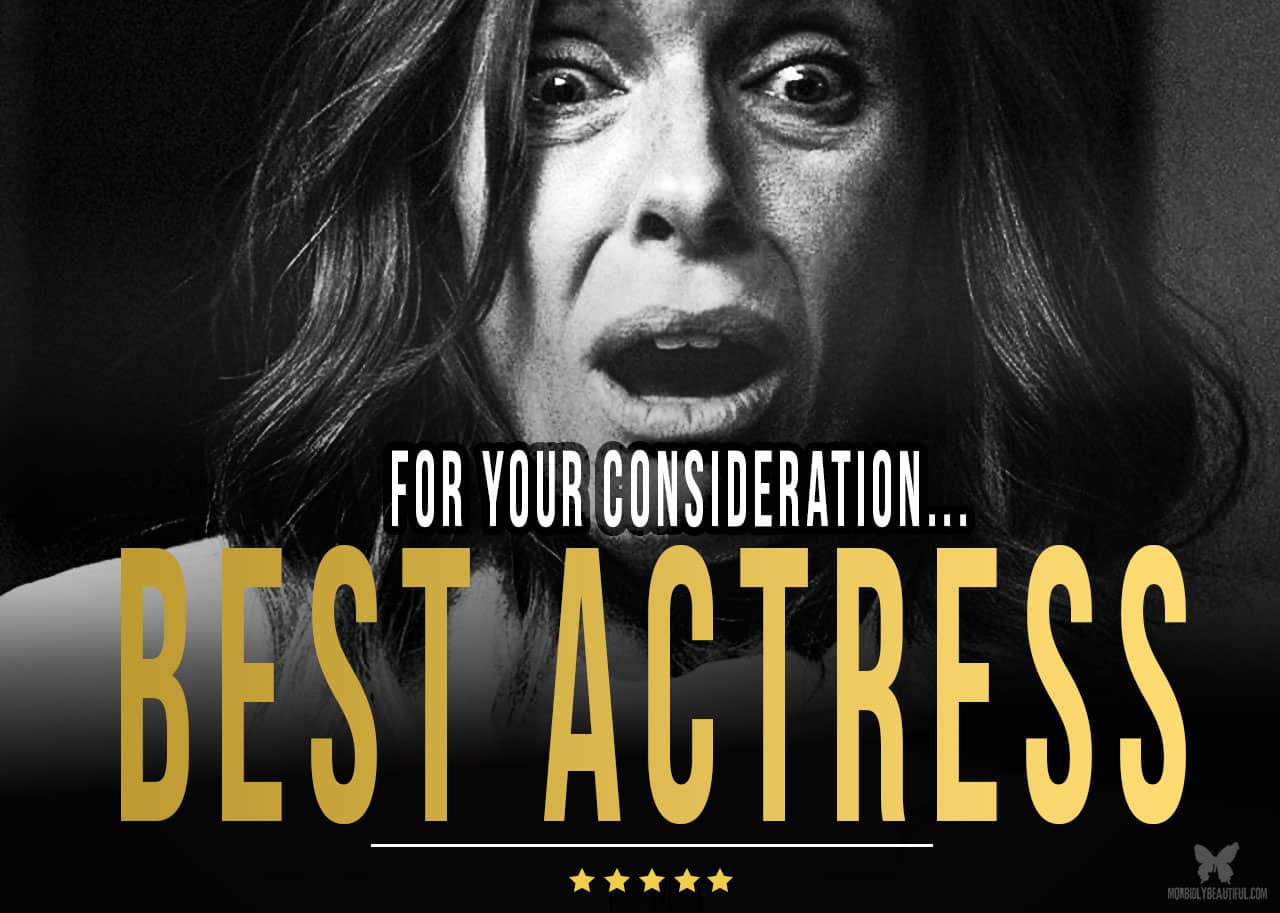
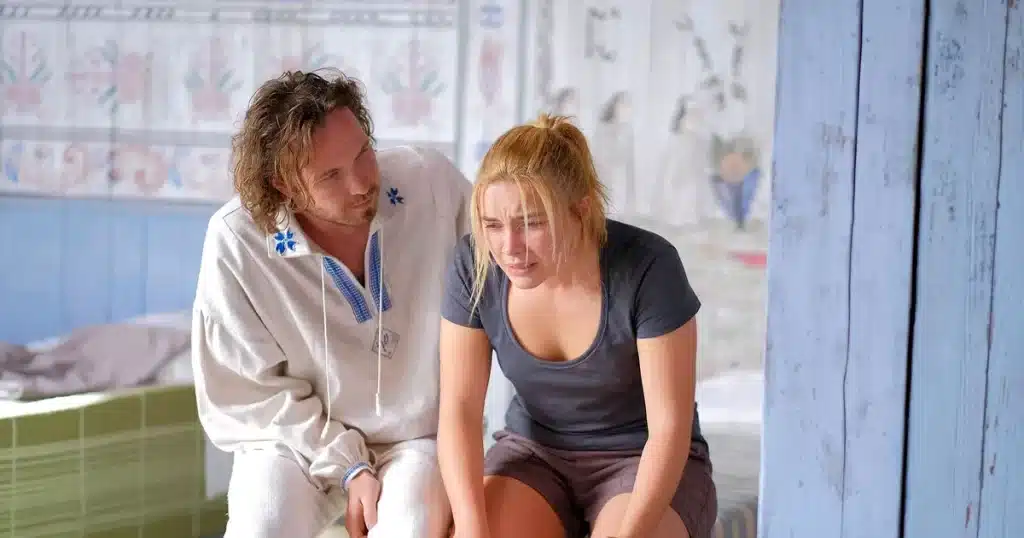
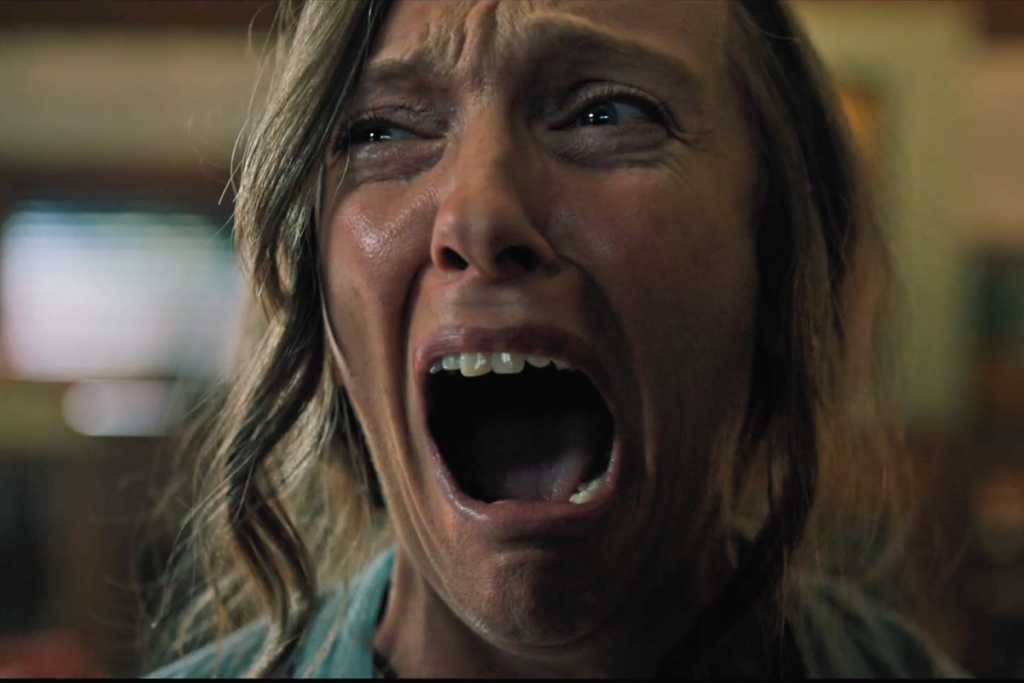
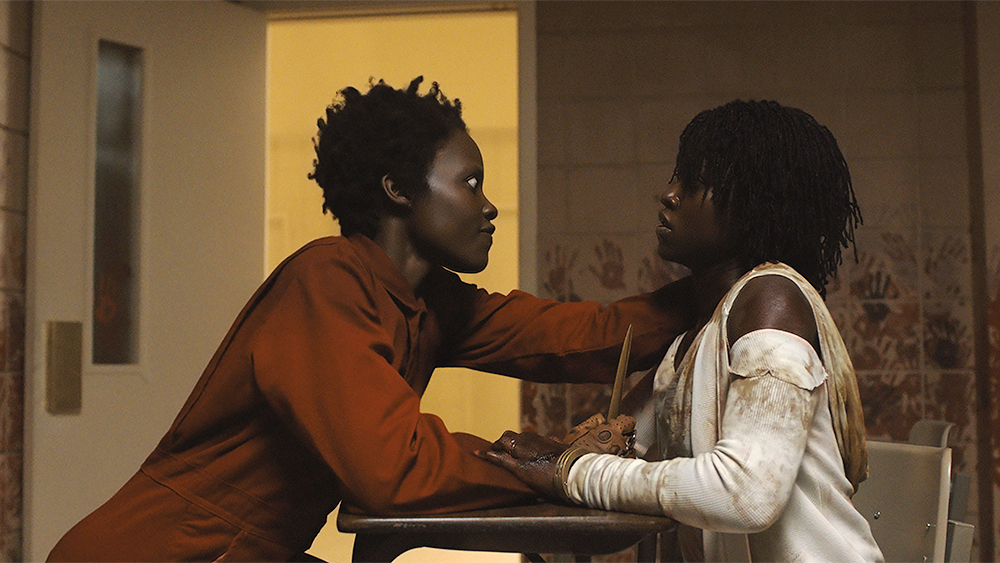
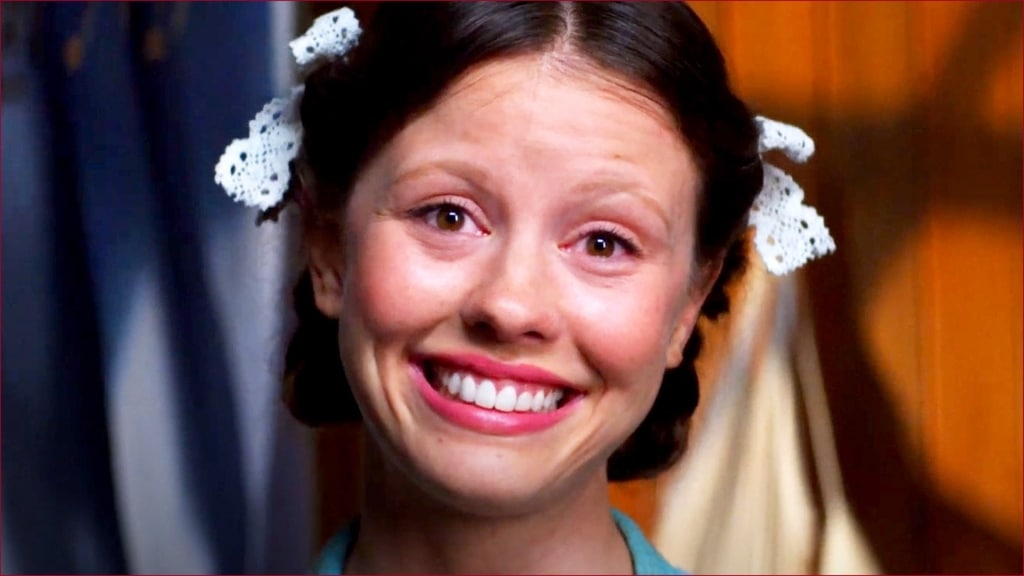
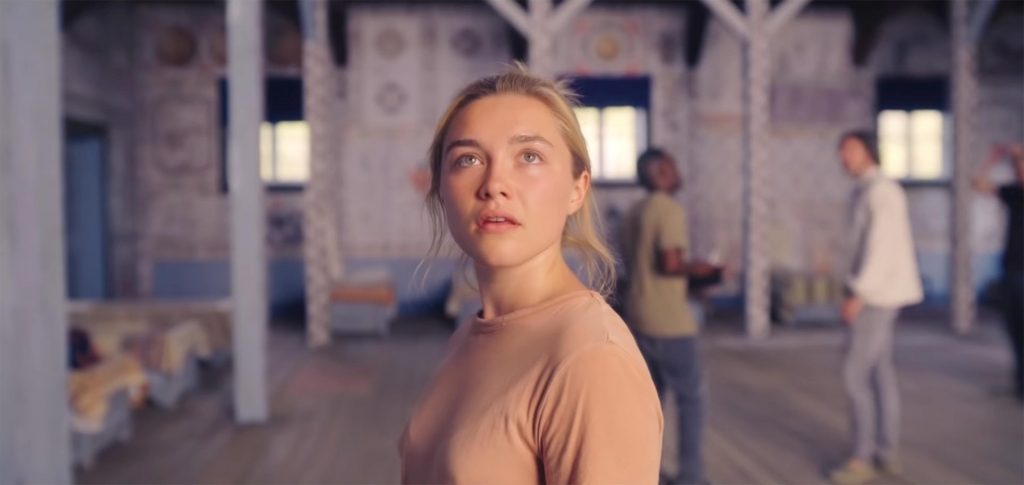
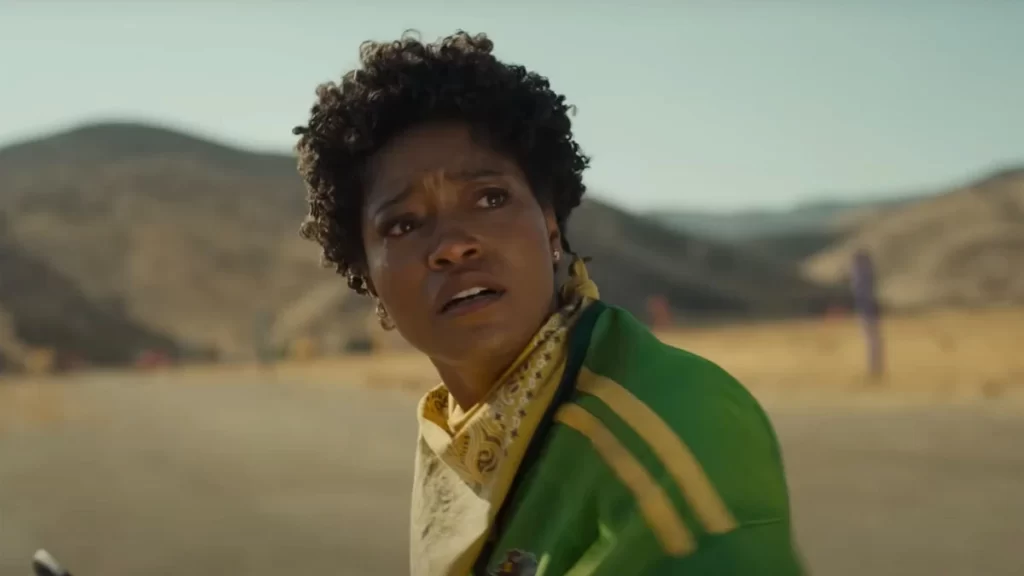
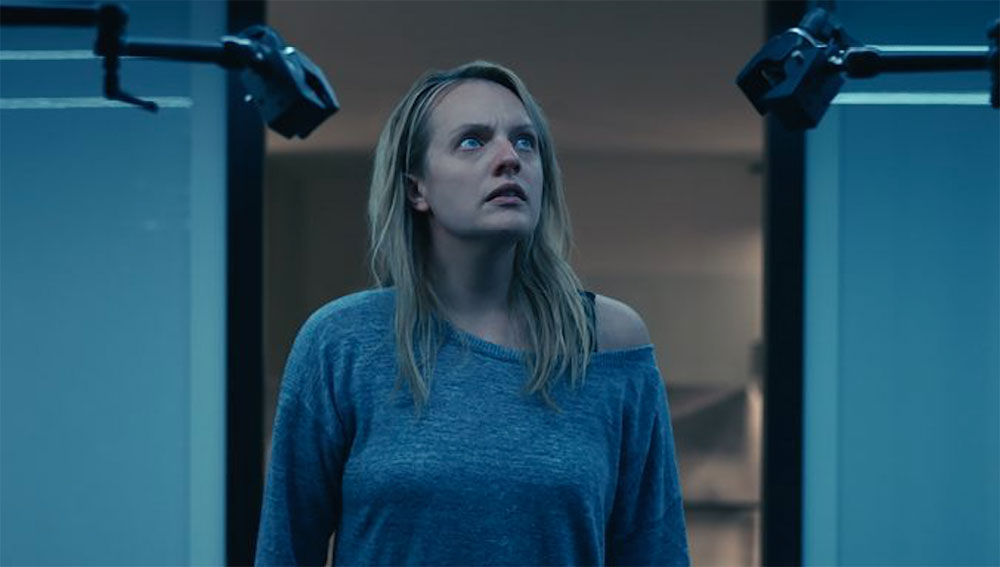

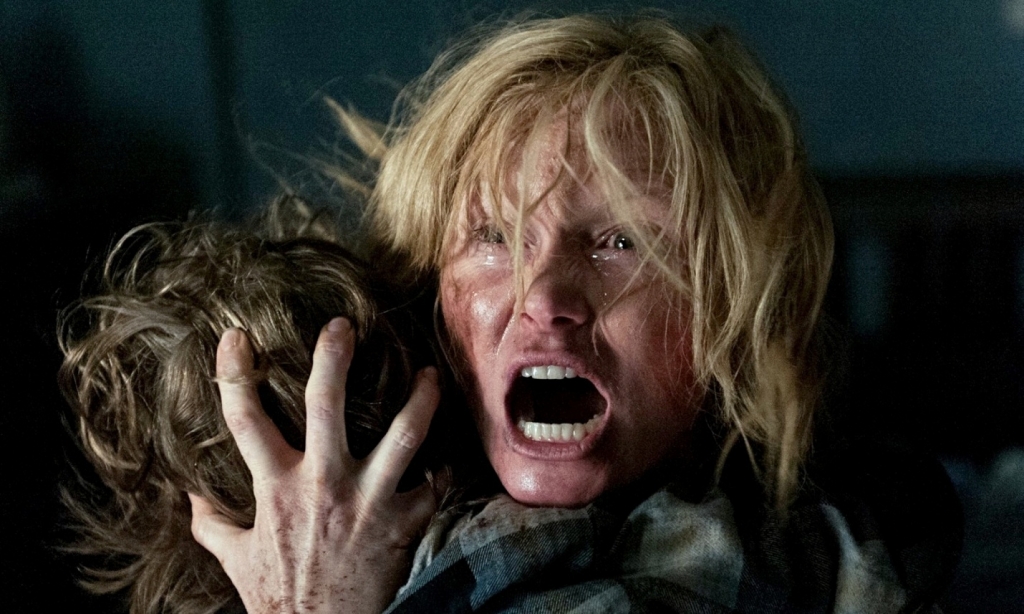
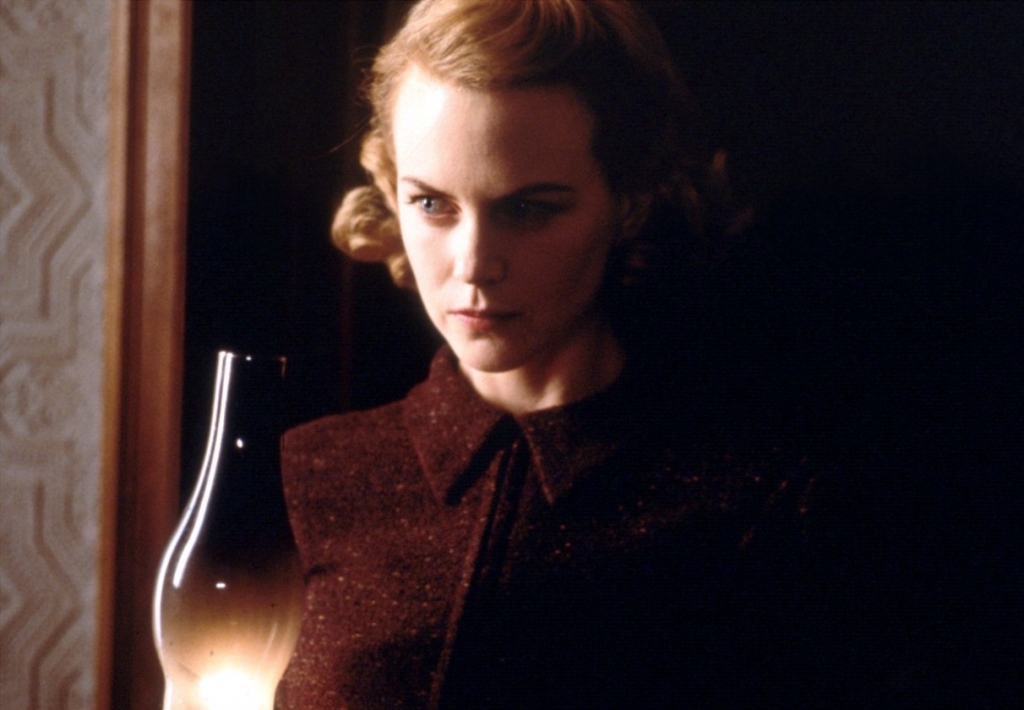
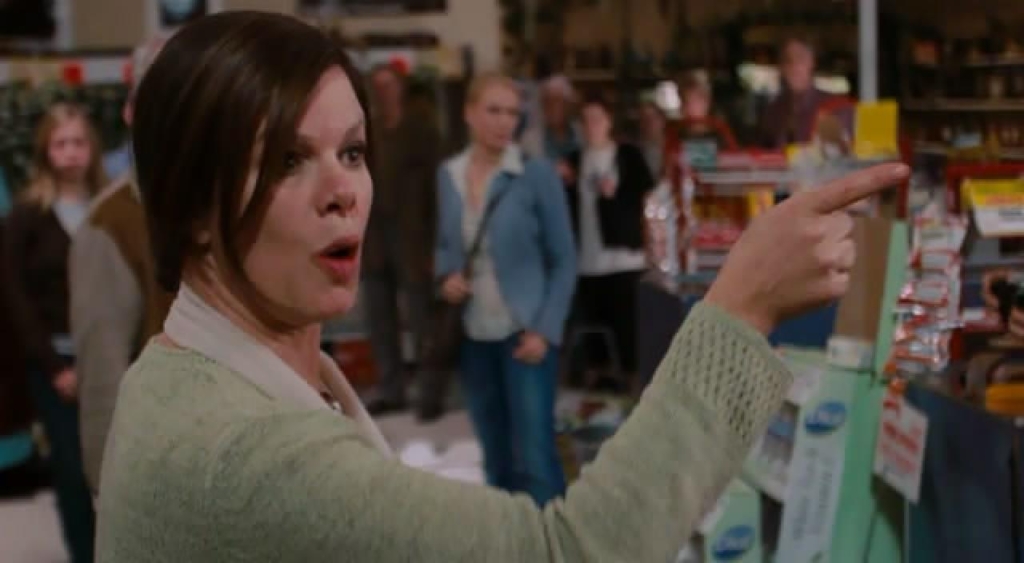

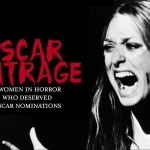









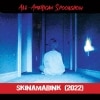
Follow Us!